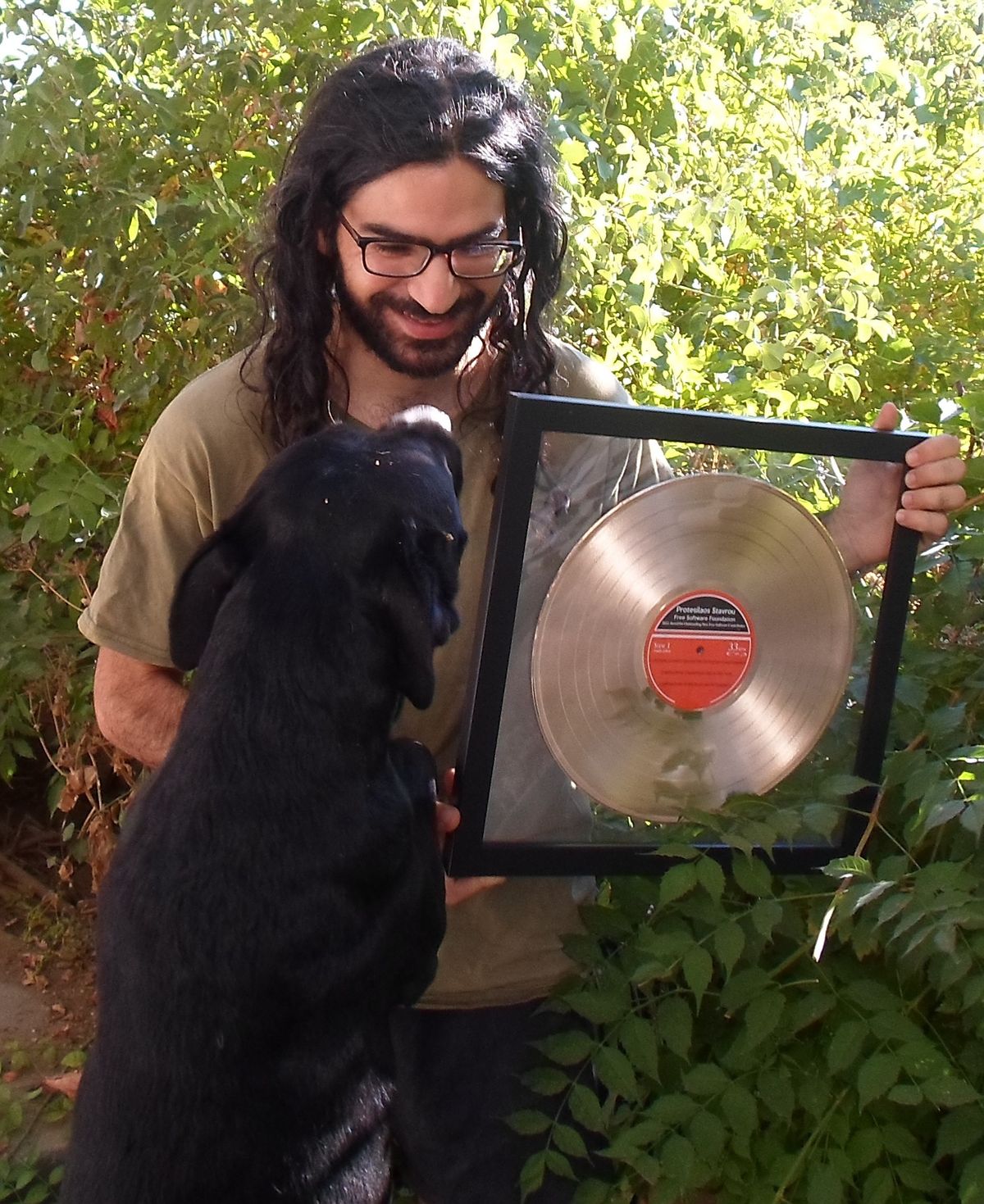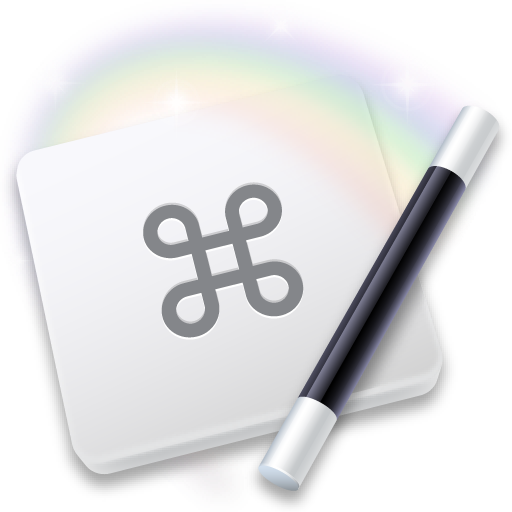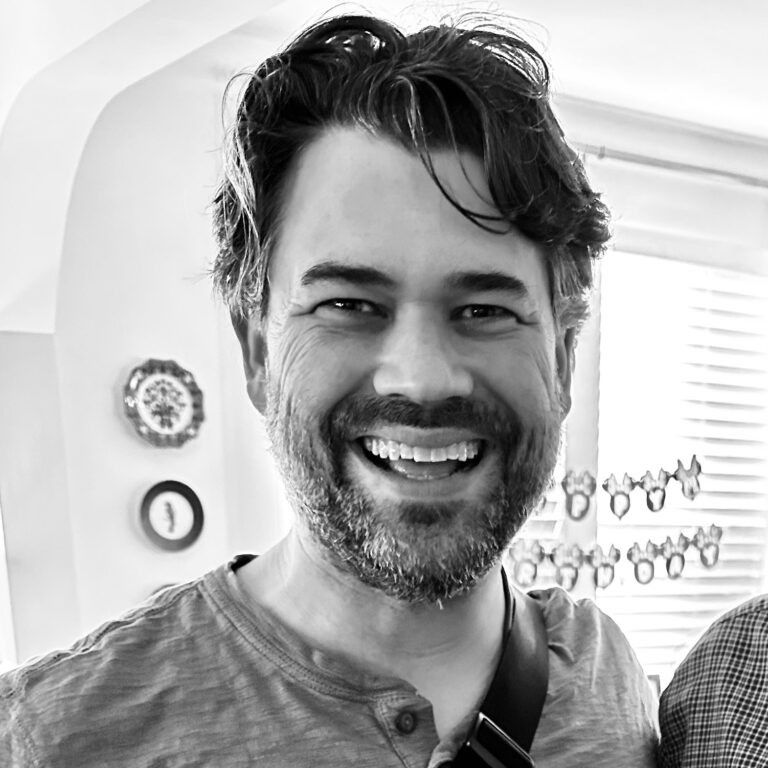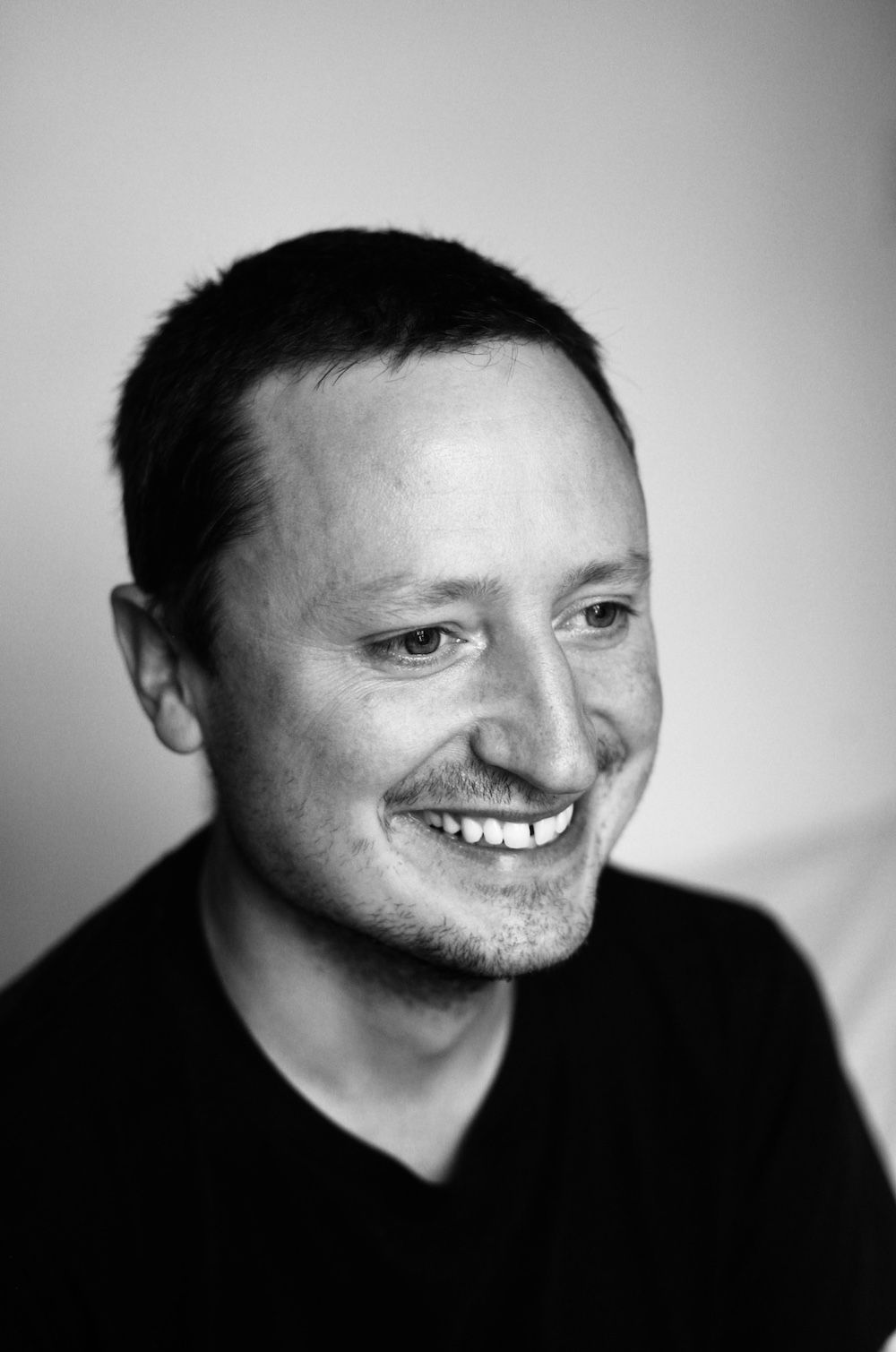An Interview with Protesilaos Stavrou
An interview with Protesilaos Stavrou, a philosopher, prolific writer, and Emacs extraordinaire.

Who are you, and what do you do?
I am Protesilaos. Some friends, especially English-speaking ones, call me "Prot". You are welcome to do the same.
I do a variety of things, most of which are reflected on my website. I write/talk about philosophy, Emacs and free software, politics, and related issues. If I am to summarise all this in one word, that is "tinkerer". I proceed through trial and error.
How did you get interested in that?
All of my current interests emerged organically through everyday life experiences and/or coincidences.
Starting with the topic of my university studies — European affairs — I did not actually have a prior interest in it. As a teenager, my mind was in football (soccer) and extracurricular activities. I did not like school. The reason I picked that field for my studies is because it involved foreign languages. I thought that was cool.
I became a philosopher gradually, as I kept reflecting on both the theoretical aspects of my studies and the quotidian events I was exposed to. Since my early teenage years, I have been a keen student of the human condition. I have seen how people behave in different circumstances and have a good way of reading individuals. Philosophy was the culmination of years of thinking about what we are doing in our lives and why. It also is what emancipated me from falsehoods that are perpetuated through my culture in the form of social expectations.
My interest in technology developed relatively late in my life. The first computer I bought was in 2018: it was a Lenovo ThinkPad X220. While the first laptop I ever owned was a hand-me-down Macbook I got at work in late 2012 or early 2013 — I am not sure anymore. Up until the early 2010s I did not know anything about computers. Not even common keyboard shortcuts like Alt+Tab. I remember that being a revelation! I still am bad at typing as I cannot touch type and cannot keep my hands on the home row: they hover above the keyboard, while I mostly use just the index on the left hand... At any rate, I switched to using free software in 2016 out of a desire to break free from the increasingly constraining corporate control I was under. First using the Macbook and then, when that broke, moving to the ThinkPad. For me this was always about freedom: I did not know the technicalities.
Through daily use of GNU/Linux and its individual utilities, I learnt more about software and computers in general. I eventually configured my bespoke setup that involved a tiling window manager (BSPWM is its name), Tmux, Vim, XTerm, Mutt, Newsboat, and others. Basically, I was living in the terminal and was handling my files with core programs like 'cd', 'cp', 'mv', and related.
My experience with those tools made me realise the limitation of the Unix paradigm: the lack of an integrated layer of interactivity. I was not happy that I could not configure all my programs in a uniform fashion. Vim uses Vimscript, Ranger is done in Python, the window manager expects shell scripting... Each of those is excellent in its own right, but the gestalt form is awkward. The missing layer of interactivity is apparent in wider workflows but also in little things like setting a theme: it is not trivial to make all those programs sing in concert.
As such, I switched to Emacs in the summer of 2019. There I found what I considered the missing piece of an otherwise nice Unix-y system. I have been using Emacs ever since and have also learnt how to program a few things. I did so by tinkering with Emacs until I could eventually write fully fledged programs in Emacs Lisp.
What resources could you suggest to people who want to learn how to do what you do?
Given that most of what I learnt and am interested in came about organically, it is hard to suggest a way to reproduce my experiences. What I do is largely a matter of serendipity. I did not follow anyone and was not working towards something from the start.
Perhaps though there are some insights I can share. One would be to remain dubitative and inquisitive. Learn things for yourself and try to confirm what information you are exposed to and have an interest in. Instead of seeking out an influencer to follow, mark your own path by asking "why" and following up on it.
Where possible, make a habit out of reading the official documentation and relevant resources. Do not sacrifice depth of knowledge for the short-term convenience of getting an answer you can copy-paste. Such easy solutions give you the impression you are taking a shortcut while getting things done, while they actually keep you in the same state of powerlessness — you do not fully understand what you are doing.
Seek high quality reading materials and try to provide those wherever you are involved. For example, dismiss programs whose developer is not considerate enough to write a decent manual for. Not everyone is a domain expert though all deserve to be empowered with the knowledge of how things work and are configured.
As an aside here, we talk about software freedom in a manner that is moralistic/legalistic. That is fine, albeit inadequate. For me, an integral part of freedom is its availability. How can one be free in their computing, for instance, if the otherwise libre program they are trying to use has poor documentation and an inaccessible interface? Freedom presupposes empowerment and that comes about by tending to the accessibility of the tool.
What software, hardware, and other gear do you use on a regular basis?
I used to have the Lenovo ThinkPad X220 that I mentioned. It stopped working a couple of years ago. I still wish to fix it, though I never had the luxury to do so. I have since been working on a custom built desktop computer that I bought with donations I got from the Emacs community. The computer is not super powerful, but it is more than good enough for me — the laptop was already sufficient.
I recently got a smartphone, a Samsung A53, courtesy of a generous donation. I only use it for its camera and the occasional phone call or SMS. I do not do anything else with it.
In the indeterminate future I want to get a spare computer, perhaps a laptop, so I can experiment with other operating systems such as Guix. I cannot do it now because I cannot afford the downtime, plus I do not have extra hardware for backing up my current files.
It would also be nice to acquire an ergonomic keyboard and a chair that is comfortable to sit on for prolonged sessions.
On the software front, I use Emacs for virtually everything. I write prose and code with it, manage files, handle my email correspondence, prepare my agenda, play back media files, read RSS feeds, browse the Internet... Most of my time on the computer is spent in front of an Emacs frame.
I run a graphical web browser, mostly Firefox, when I need to access a website that requires JavaScript.
The rest of my computing environment involves a tiling window manager (BSPWM or HerbstluftWM), an application launcher (Rofi), a terminal emulator (XTerm), and other specialised tools such as 'picom' for display compositing and 'feh' to set a wallpaper.
All things considered, I have a stable setup through the years. There are incremental refinements and lots of improvements on the Emacs front, though the overall experience is largely the same.
You've written a lot about Emacs and publish or manage several Emacs packages. What is it about Emacs that appeals to you?
It is the layer of interactivity on top of Unix. With Emacs, I have access to a powerful, programmable/extensible, customisable, and introspectable system that empowers me to use my computer in a highly opinionated way. As I hinted at earlier, I care about the accessibility of my tools. When I need to be an expert in many different programming languages just to achieve integration between my programs, I feel disempowered. Whereas with Emacs, I control things uniformly by doing everything in Emacs Lisp.
I think Emacs is the embodiment of software freedom and its greatest champion. This is due to how configurable and transparent it is. Though it also has to do with the strong documentation culture that defines the development of the core program as well as packages in its midst. To offer a small indication, the absence of a docstring counts as a warning while linting an Elisp program. That is wonderful because it nudges the developer to think about the user and to write in plain terms what the code is doing.
Emacs trains you to expect a high standard of documentation. You have all sorts of ways to find information about what a key binding does, what the value of a variable is, and so on. The built-in Info reader gives you access to high quality manuals while every package maintainer in the Emacs community is expected to contribute to this corpus of work.
Fundamentally, what I like about Emacs is that it teaches the user to seek freedom in computing beyond the technicalities of the law. I would like every program to be Emacs-y in its behaviour and to aspire to the highest standard of empowering the user to use their tools in a manner that makes sense to them.
There's a prevailing belief that Emacs has a steep learning curve and requires plenty of setup, whereas something like VS Code can get you started on your work quicker. Why invest the time to learn Emacs?
I think this belief is rooted in fact. Emacs differs considerably from other similar programs. The familiar loop of starting up a program, searching for a quick-n-dirty solution online, and then continuing with the work does not make for a pleasant experience with Emacs.
Instead, the user who wants to succeed long-term must put in the effort to go through the official tutorial and read at least a little bit of the manual. Those who make a habit out of resorting to the official help material and/or use the excellent self-documentation commands will become happy Emacs users. The rest will struggle with that notorious learning curve and will feel bad about it.
While there are many tweaks we can make to improve the out-of-the-box experience of Emacs, the fundamentals cannot be refashioned. Users still need to unlearn the bad habit of relying exclusively on online searches for all their questions. Much of what I read in fora is already answered in plain terms in the docstring of some relevant function/variable as well as the accompanying Info manual. The user has to learn how to retrieve that information. This is the skill that sets someone up for success; a skill worth developing into second nature from the outset.
Other applications do offer convenience at the cost of keeping their user in the same state of relative dependency they are in. Most of those users do not receive an impetus to be in control of their computing environment. They limit their role to that of a consumer. When the app they use eventually goes out of fashion or its development is discontinued, they throw away everything they built and start again with whatever the new normal is. This is wasteful and ultimately disempowering.
If we always prioritise short-term convenience over longer-term mastery, we eventually have no mastery at all as years go by. We will always feel helpless. The time one invests in learning Emacs is time well spent because the resulting knowledge can feed back into using Emacs in a more refined way. Emacs is extensible and will grow to match the needs of its user. There is a reason this program has been around for almost half a century and that is because it can gracefully adapt to changes and be the editor or integrated computing environment its user needs.
As such, Emacs has a role to play in character building. It teaches the user to be patient and persistent. It also exposes them to the practical benefits of freedom, expressed through its introspectability and customisability. Choosing Emacs is not just a matter of deciding how to edit text. It largely is about what kind of person one wants to be.
I know this sounds preposterous, as we are conditioned to think of text editors as "text editors" and nothing else. Though we can do better than that by considering how one's tools have a profound effect on one's disposition.
What are some changes you'd like to see that you think would improve Emacs?
I will keep this limited to what I think is achievable within the status quo. This is not to imply that I am not interested in thoroughgoing enhancements, but only that I understand those require considerable effort to be actualised.
I would provide a more opinionated set of defaults, accessible through an opt-in mechanism at the end of the official tutorial. There are small tweaks, such as enabling 'delete-selection-mode', but also more ambitious reforms in the spirit of enhancing the functionality of the minibuffer with packages like 'vertico', 'marginalia', and 'orderless'.
I would also add some rules to the 'display-buffer-alist'. For example, to make the 'calendar' command or Help buffers appear below the current window. Basically, to make the appearance of certain transient elements less disruptive.
I would write a 'custom-file' to a file inside the user's directory instead of the current intrusive---and confusing — default of appending auto-generated text to the user's hand-written initialisation file. The 'custom-file' would be loaded early, to give priority to whatever values the user specifies later in their configuration.
Furthermore, I would change the behaviour of 'load-theme' to disable all other active themes by default. Expert users can always get back the current behaviour via a toggle, whereas novices do not understand why, say, the blend of 'modus-operandi' followed by 'wombat' is barely usable even though each of those themes is fine in its own right.
Which package (or packages) or bit of code that you've written are you most proud of?
There are lots of little snippets I could share here, but I will keep it generic instead. I like the low-tech power that I get from the file-naming scheme of 'denote'. This is not code per se, though it does improve my life considerably as all my files, from plain text notes to lengthy videos, are easy to find.
Your commentaries, interpretations, critiques, and other published writing is a joy to read. Over more than a decade, you've made more than 1,000 entries. Why write so much and often?
I write out of necessity. I have this inner need to express myself and do lose my sleep when I do not do what I must. What keeps me going is the attitude of not catering to an audience. I simply speak my mind. If there is an audience, that is a happy coincidence, though it never is my goal.
I think the most difficult part with public writing is how to deal with feedback or, more likely, the absence thereof. I learnt that publishing my thoughts is of inherent worth to me and so I am not disappointed by the lack of attention.
I rarely get comments beside the formulaic ones. I never share my publications on any "social" platform because I fundamentally am not basing my creativity on what others think about my musings. I avoid reading what others write about me and do not try to influence any such commentary. I want to retain this aloofness. It is a matter of creative freedom and of not falling into the trap of being a persona that vindicates the memes of some community.
This leads me to an aside on seeking validation. We want to say something that our peers approve of and thus are discouraged when we eventually get no positive feedback on our work. The solution to that is to ask why do you like something. Why are you passionate about your favourite music, for example, and do not care whether your friends listen to it or not? It is the same with maintaining a website. Speak your mind with sincerity and without pretences. Do it because it fulfils you. If you are wrong, take it gracefully. If you are congratulated for your efforts, treat it as if it never happened and keep doing your thing with humility.
You may wonder, then, why publish my writings when I practically treat them as a private affair? The answer has to do with what I call "accountability structures". When we keep notes private, we are inclined to dwell on them indefinitely. We also get too comfortable in the pattern of not subjecting our thoughts to scrutiny. We become too timid. Whereas I want to maintain a record of what I think about and do it in a manner I cannot rewrite. This keeps me honest, as I will err transparently, while it sets up a mechanism that triggers the sportperson's competitiveness within me.
In your About, you write that "What I wrote in the past may not represent my current views." What are some views that have changed or evolved over the past decade?
There probably are too many for me to enumerate. What comes to mind right now is a political theme. I used to believe that the European Union could be rendered approachable by turning it into a de jure federal republic. I now think this is not possible, given the path dependencies of the project and the vested interests involved. What we have in place is a system that by its design engenders a phenomenon I describe as "sovereignty mismatch". We witness the uniformity of power/authority over the whole area without the commensurate accountability and legitimacy. There is an EU-wide "state" apparatus, though it is not described as such, without an EU-wide democracy. While each member-state is a democracy, at least in principle, the combination of them is not and cannot be given the particularities of the architecture they operate in. In short, I no longer believe in the EU project, despite the fact that I remain a cosmopolite at heart and want Europeans to prioritise their commonalities over their differences.
There are also stylistic issues I have changed. I used to express myself in a more verbose way that felt needlessly professorial. My mistake was to believe that sophistication is found in jargon and statements that are hard to comprehend. Whereas now I try to state my thoughts in plain terms. I have confidence in the depth of my views and know how to show that to the uninitiated. I do this, for example, with my philosophy which is practical even though I can make it highly abstract and obscure. When I read some philosopher's cavalierly writings, I get the sense they are being ridiculous with all that apparent pretentiousness. I do not want to impress anyone, especially if that means I do not communicate my ideas clearly. If I did fail this test in the past, it is a mistake I acknowledge through my current practice. And if I am currently falling short on some front, I know I will be able to look back at it and accept it with honesty.
More generally, that proviso is a statement of intent. My outlook is to remain open to the possibility of change. I do not strive to be consistent and to follow whatever dogma, including my own.
Are there any views that you thought wouldn't change, but did change?
I used to believe in free market economics, thinking that they are the natural order of things. I eventually learnt that what we read from textbooks contains a kernel of science upon which ideological structures are established. I figured we cannot decouple "the economy" from social and political affairs, which themselves unfold within a specific nexus of cultural-historical institutions. Economics, like every field of intellectuality, embeds deep seated values which it treats as objective facts. The problem is that it does it in a way that is hard to spot because we are immersed in this milieu which is underpinned by those very values.
Another thought that changed was my passion for football (soccer). When I was a teenager, I used to think that professional sport is perfect. My injury and the way I was cast aside taught me that sportspeople are expendable and that the sport industry, with an emphasis on "industry", does not care about the wellness of its workers. I remain a sportsperson in my disposition and am athletic overall. I still follow the Olympic ideal of fair competition and continue to see the unity of the otherwise analytical constructs of mind and body. What I do not respect anymore is the commercial version of sport: it runs contrary to the values it purports to represent.
You describe yourself as a philosopher. What is it to be a philosopher, and to do philosophy?
It feels lonely. I have no-one to talk to about my interests, while those who quickly realise I am even remotely philosophical in my thinking and speaking treat me as some sort of alien. Not because I do not make sense: they simply are afraid to commit a mistake, thinking that I will berate them for not being smart enough or something like that. I loath the capable person who thinks they are special and does not treat others kindly. I am a keen listener and encourage others to speak their mind.
The most common response I get from folk is some variant of self-inhibition such as "I have not studied philosophy; I cannot teach you anything." In truth, they can teach me a lot even when they do not realise it. I tell people how they are mistaken in belittling themselves and how philosophy is not about being books-smart. I have heard profound insights into life from people no-one would consider wise.
Being a philosopher is about remaining dubitative and inquisitive. This attitude applies to all affairs: it is not limited to some experiment in a laboratory. Ultimately though, to be a philosopher is to be simple because you realise that your every answer leads to more questions. It all ends in a question mark, making you recognise your insignificance.
How do you relax or take a break?
I take long walks in nature. I live in a mountainous region. There are pine forests here, while I enjoy hiking with my dog. I used to require breaks from what I was doing because my work and its concomitant expectations were not consistent with my actuality. We need time off when what we do depletes us. Though I no longer have such a need. My activities do not drain me of my vitality, so my break time is a change of scenery rather than an escape from some odious routine.
Whose work inspires or motivates you, or that you admire?
The people I admire and am inspired by are the ones we would consider unsung heroes. They are unknown to the wider public. Zakaria the conscientious hairdresser, Maria the tireless bartender, Beran the eager community-builder, Andreas the cheerful neighbour... These are people who show resilience in the face of hardship; who will give you half a loaf of bread even though one is all they have.
What they know is what I have learnt as well: we do not truly own anything; what we get is not ours to keep. I want to offer everything I do in freedom as I am taught from those fellows what it means to be humble. My hope is that my contributions can help someone out there and inspire them to be a force for good in this world.
Anything else you'd like to add?
Do not cling on to what you have out of some misplaced sense of duty towards consistency. Allow yourself the chance to change, to think anew, to appreciate things in a different light. Believe in yourself and state your views respectfully yet unapologetically. Be happy to be proven wrong, as that emancipates you from whatever falsehood governed your actions. And when things do not go your way, smile while readying yourself for the challenge ahead.




